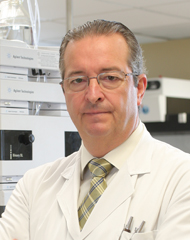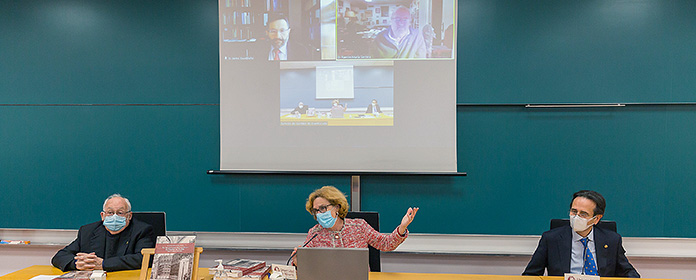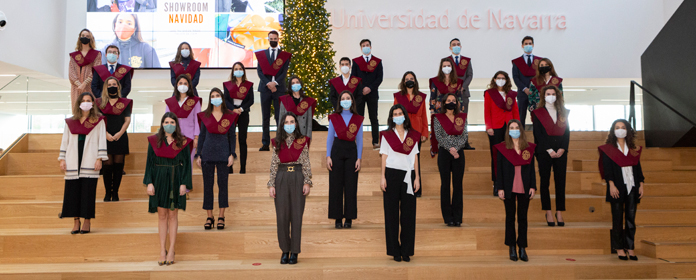“It’s a mistake to think the vaccines are not going to be safe”
As vaccination gets under way in the United Kingdom, Dr. José Ramón Azanza reminds us that that the vaccinations were tested on more than 40,000 people whilst drugs may be trialed in fewer than 5,000

FOTO: Manuel Castells
According to Dr. José Ramón Azanza, an expert in pharmacology at the University of Navarra, “new drugs are put on the market after being tested in fewer than 5,000 individuals in short-term treatment. This is in contrast to vaccines: between 40,000 and 60,000 subjects are assessed after several months of follow up. For this reason, it would be a mistake to say vaccines are not safe. Azanza was speaking during a training session organized by the School of Nursing about treatments for COVID-19.
Regarding the start of vaccination in the UK this week, the expert believes that ”this is related to Brexit because the UK is now autonomous in making decisions which up until this year would have been made by the European Medicine Agency for all EU countries”. Moreover, in relation to data obtained from this start of vaccination campaign, Azanza feels that “it is very unlikely that the current, very positive scientific data on safety and efficacy will change, at least in the first few months”.
In this online session, the second of a cycle of free talks for health professionals organized by the School of Nursing, Dr. Azanza recalled that a great deal of knowledge has been gained about the functioning of many therapeutic measures for the treatment of COVID-19: “We now know the real usefulness of many of them. Some are more useful than others, and there are a number on which we are still awaiting results. We are generating a huge volume of medical information, with more than 77,000 articles, of which about 2,000 address treatment and over 800 discuss vaccines.”
At least six vaccines from January 2021In relation to whether vaccination is the solution, Azanza notes that there will be at least 6 vaccines available by January 2021, “vaccines using different mechanisms, with different methods of administration and conservation. In any case, the public should not be worried about this. (…) The most important thing is its broad efficacy – over 90%, provided that they are used, as seems most effective, in two doses, 4 weeks apart – and that the population selected for vaccination, in line with the instructions of public authorities, is vaccinated as soon as possible. Only in this way will we succeed in overcoming the problem as conclusively as possible”.
Regarding administration through primary care teams, Azanza thinks that “this is a good approach. These teams manage these situations very well and over time, as they gain more experience, it could be delegated to other services such as occupational health departments in large companies.”
“Hospital treatment or outpatient treatment of COVID-19: Is the vaccine a solution?” is the second in a series of online sessions for students, former students and healthcare professionals organized by the School of Nursing at the University of Navarra.





